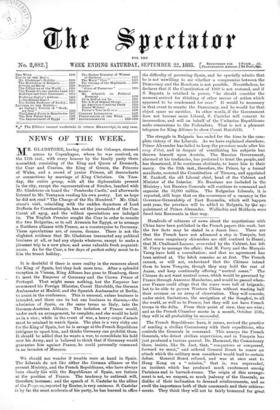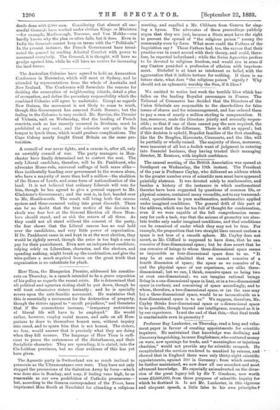The French Republicans have, it seems, revived the practice of
sending a civilian Commissary with their expeditions, who controls the Generals in command. This annoys the French Generals, who detest civilian supervision, and in Tonquin has just produced a furious quarrel. Dr. Harmand, the Commissary there, insists, like St. Just, that, "conquerors or conquered, forward we must," and ordered General Bouet to renew an attack which the military men considered would lead to certain defeat. General Bonet refused, and was at once sent to Hong Kong on a "mission," that is, was superseded, an incident which has produced much excitement among Parisians and in barrack-rooms. The origin of this arrange- ment is not, we suspect, so much jealousy of the Generals, as dislike of their inclination to demand reinforcements, and so swell the importance both of their commands and their achieve- ments. They think they will not be fairly honoured for great
deeds done with 2,000 men. Considering that almost all suc- cessful Generals have worked under civilian Kings or Ministers —for example, Marlborough, Turenne, and Von Moltke—one hardly knows why the plan so often fails, but it does. Even in India the Generals cannot keep on terms with the " Politicals." In the present instance, the French Government have termi- nated the quarrel by sending Admiral Courbet with power to command everybody. The General, it is thought, will have no grudge against him, while he will have no motive for increasing the land forces.



































